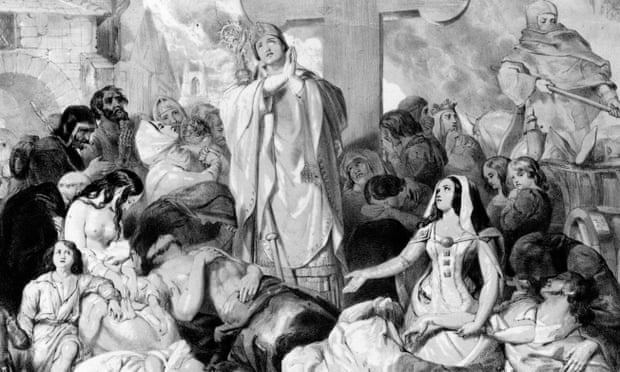Thousands of volunteers have helped to uncover the full and devastating extent of the population collapse caused by the epidemic
Praying for relief from the bubonic plague or Black Death Hulton hh3748.jpg Photograph: Hulton Getty
Scraps of broken pottery from test pits dug by thousands of members of the public have revealed the devastating impact of the Black Death in England, not just in the years 1346 to 1351 when the epidemic ripped Europe apart, but for decades or even centuries afterwards.
The quantity of sherds of everyday domestic pottery - the most common of archaeological finds - is a good indicator of the human population because of its widespread daily use, and the ease with which it can be broken and thrown away. By digging standard-sized test pits, then counting and comparing the broken pottery by number and weight from different date levels, a pattern emerges of humans living on a particular site.
Read the rest of this article...

No comments:
Post a Comment